Nature Therapy: Books
Further resources, if available, can be found in our full bibliography.
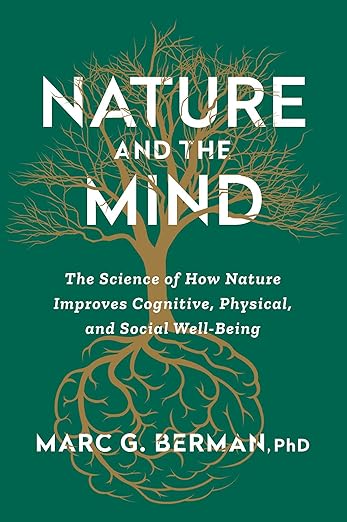
Nature and the Mind: The Science of How Nature Improves Cognitive, Physical, and Social Well-Being
Marc Berman
Simon & Schuster
2025
Dr. Marc Berman, the pioneering creator of the field of environmental neuroscience, has discovered the surprising connection between mind, body, and environment, with a special emphasis on the natural environment. He has devoted his life to studying it. If you sometimes feel drained, distracted, or depressed, Dr. Berman has identified the elements of a “nature prescription” that can boost your energy, sharpen your focus, change your mood, and improve your mental and physical health. He also reveals how central attention is to all of these functions, and how interactions with nature can restore it. Nature and the Mind is both an introduction to a revolutionary new scientific field and a helpful guide to better living. This groundbreaking guide explains why and how nature is good for our brains and bodies and gives us a window into fundamental aspects of our psychology and physiology that can be improved through interactions with nature.
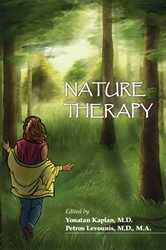
For centuries, spending time in nature has been recommended for those seeking peace of mind, a sense of calm, a flash of inspiration, or a new perspective. Following these principles, this book examines the empirical evidence supporting nature’s therapeutic properties and provides practical guidelines on implementing nature therapy interventions. In Nature Therapy, readers will find an exploration of the risks, benefits, specific applications, and limitations of modalities that include hydrotherapy, animal-assisted therapy, and horticultural therapy. This guide also considers topics such as the importance of urban green spaces, the intricacies of nature-centered indoor design, the involvement in nature activism, and the incorporation of nature therapy into the classroom setting. With clinical case examples that illustrate important concepts, key takeaways for ease of future reference, brief quizzes that aid in the retention of knowledge, and extensive resources and references that serve as gateways to further learning, this illuminating new volume is an unrivaled guide to a vibrant area in mental health.
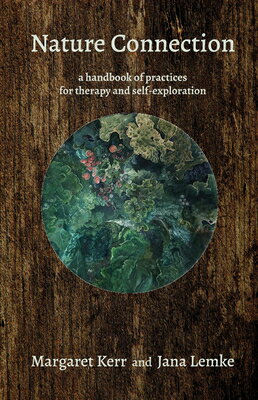
Nature Connection: a handbook of practices for therapy and self-exploration
Margaret Kerr, Jana Lemke
Triarchy Press
2021
Exercises fall into five categories: Ecological Self, Embodiment, Personal Journey, Mindfulness, and Inviting Mystery. Some exercises concentrate on empathising with natural elements or a living being and feeling into their innate intrinsic value. These are categorised as focusing on the Ecological Self. The notion of the Ecological Self comes from the writings of the Norwegian ecophilosopher Arne Naess and suggests an experience of deeper interconnectedness and being part of nature, where all parts of the whole have an inalienable right to their own existence. Embodiment focuses on bringing awareness to the body and exploring movement in an ecological context and as part of the Ecological Self. Exercises that invite readers to reflect on their Personal Journey are useful when looking at personal development issues or in coaching processes with clients. Mindfulness exercises emphasise exploring the senses, observing the mind, and experiencing the present moment. Inviting Mystery describes exercises that invoke playfulness and creativity, expanding beyond the rational everyday world. These experiences may go beyond easy description and invite a taste of mystery into life.
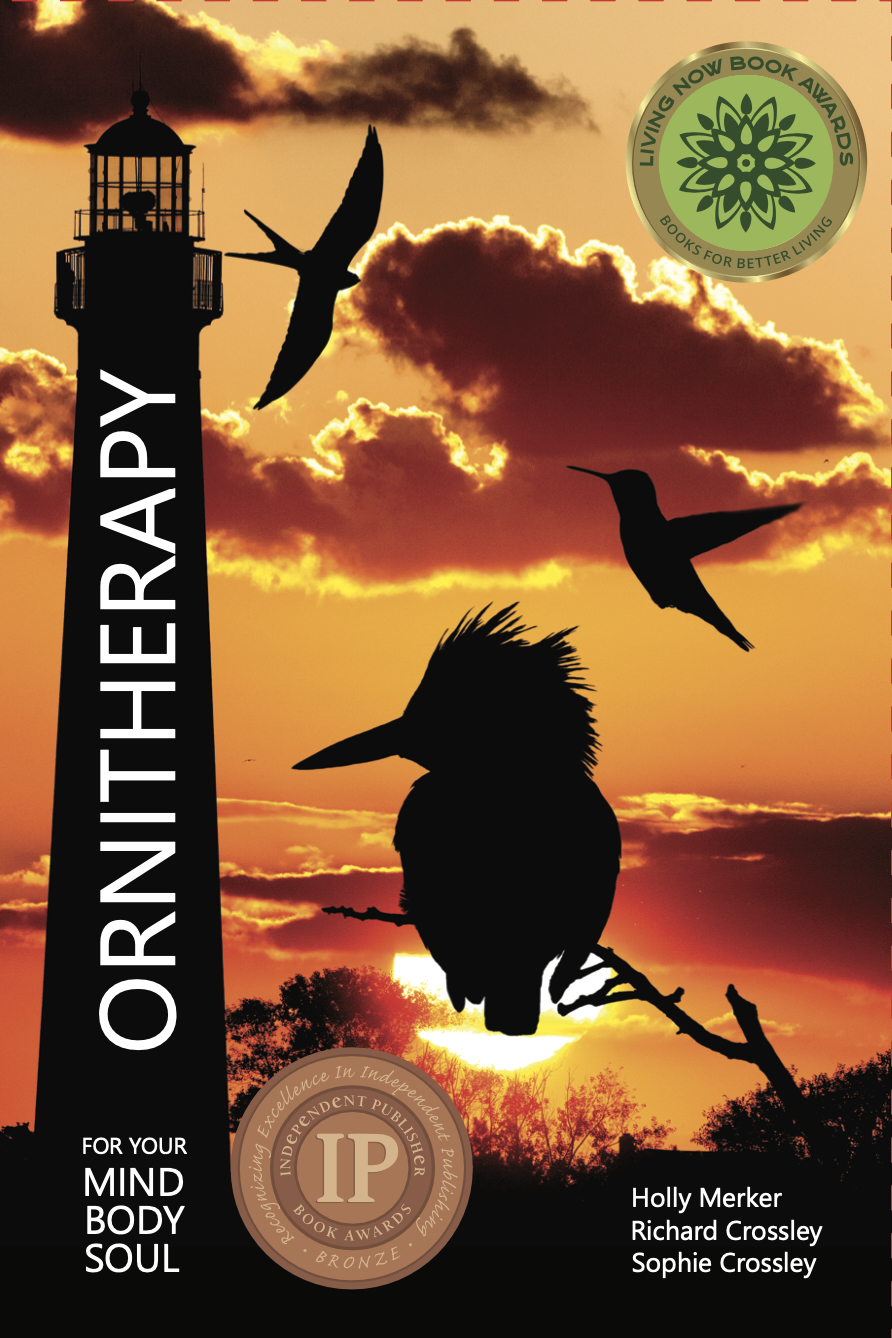
Ornitherapy: For Your Mind, Body, and Soul
Holly Merker, Richard Crossley, Sophie Crossley
Crossley Press
2021
Ornitherapy: For Your Mind, Body, and Soul guides readers into harnessing the positive benefits to health and wellbeing that mounting research demonstrates through 58 guided “Ornitherapy Explorations” and 5 guided “Meditations” surrounding birds right outside readers’ own windows and doors. The second section of the book offers journaling paper with “journal prompts” which correlate with the first section of the book’s “Ornitherapy Explorations,” allowing the reader to become an author of Ornitherapy too. Ornitherapy pairs mindfulness with observation in a way that will enhance their awareness and understanding of birds, while amplifying the promotion of well-being that nature provides them. Designed to be used from a window or transported along one’s daily travels, practicing Ornitherapy with this book can enrich a person’s life and nourish their mind, body, and soul.
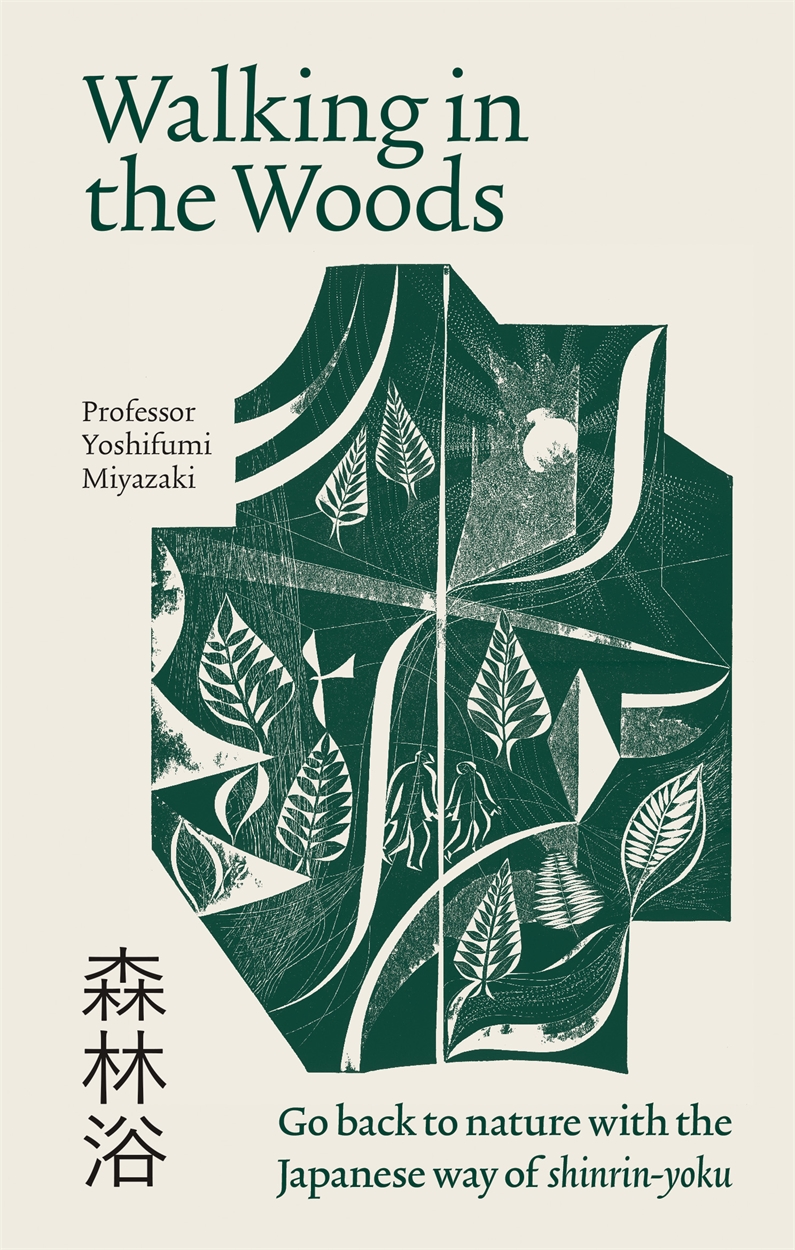
Walking in the Woods: Go back to nature with the Japanese way of shinrin-yoku
Yoshifumi Miyazaki
Octopus Publishing Group-Aster
2021
“Forest bathing” or shinrin-yoku is a way of walking in the woods that was developed in Japan in the 1980s. It brings together ancient ways and wisdom with cutting edge environmental health science. Simply put, forest bathing is the practice of walking slowly through the woods, in no hurry, for a morning, an afternoon or a day. It is a practice that involves all the senses. As a person gently walks and breathes deeply, the essential oils of the trees being absorbed by their body have an extraordinary effect on positive feelings, stress hormone levels, parasympathetic nervous activity, sympathetic nervous activity, blood pressure, heart rate and brain activity. In this book, by a leading expert in the field, science meets nature as readers are encouraged to bathe in the trees and become observers of both the environment around them and the goings on of their own minds.
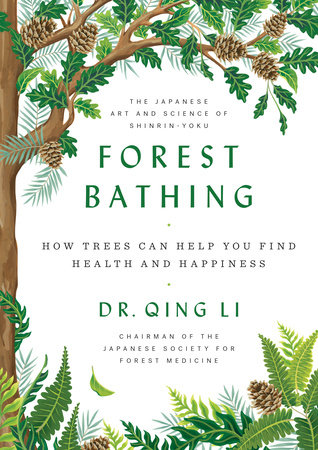
The definitive—and by far the most popular—guide to the therapeutic Japanese practice of shinrin-yoku, or the art and science of how trees can promote health and happiness. As a society humans suffer from nature deficit disorder, but studies have shown that spending mindful, intentional time around trees—what the Japanese call shinrin-yoku, or forest bathing—can promote health and happiness. This book features more than 100 color photographs from forests around the world, including the forest therapy trails that criss-cross Japan. Qing Li, an expert in forest medicine, shows how forest bathing can reduce a person’s stress levels and blood pressure, strengthen their immune and cardiovascular systems, boost their energy, mood, creativity, and concentration, and even help them lose weight and live longer. Once readers discover the healing power of trees, they can lose themselves in the beauty of their surroundings, leave everyday stress behind, and reach a place of greater calm and wellness.
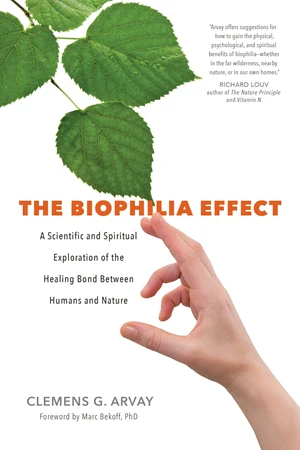
Many people have an intuitive sense of the healing power of nature. Today, science is verifying just how strong this healing bond with nature really is. The Biophilia Effect presents fascinating research along with teachings and tools for accessing the therapeutic properties of the natural world. Here is a book that will transform one’s understanding of their interconnection with nature—and show them how to engage the natural world wherever they live for greater health, inspiration, rejuvenation, and spiritual sustenance.
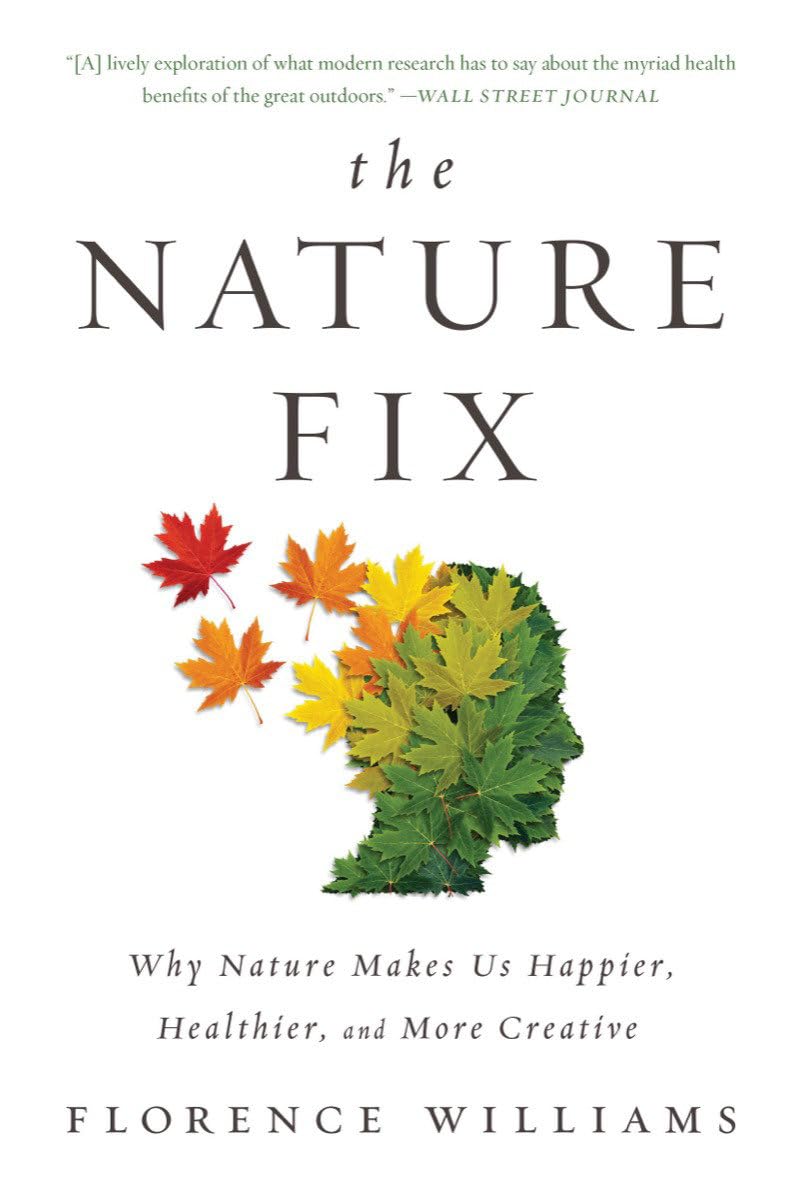
The Nature Fix: Why Nature Makes Us Happier, Healthier, and More Creative
Florence Williams
W. W. Norton & Co.
2018
From forest trails in Korea, to islands in Finland, to eucalyptus groves in California, Florence Williams investigates the science behind nature’s positive effects on the brain. Delving into brand-new research, she uncovers the powers of the natural world to improve health, promote reflection and innovation, and strengthen relationships. As modern lives shift dramatically indoors, these ideas―and the answers they yield―are more urgent than ever.
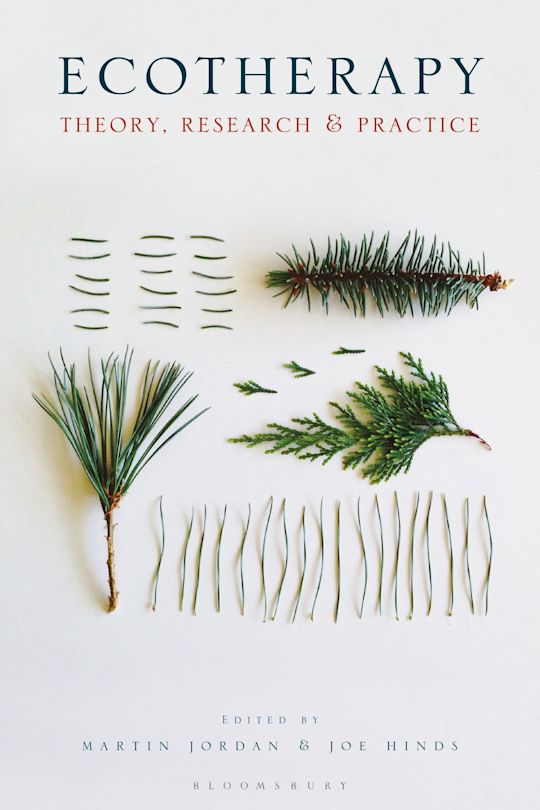
In this thought-provoking book, Jordan and Hinds provide a comprehensive exploration of this emerging area of practice. Divided into three parts, the book offers a unique examination of a range of theoretical perspectives, unpacks the latest research and provides a wealth of illuminating practice examples, with a number of chapters dedicated to authors’ own first-hand experiences of the positive psychological effects of having contact with nature. Whilst the idea of using nature to improve mental and emotional wellbeing has existed for many years, growing levels of interest in holistic, reciprocal relationships with nature have led to the development of ecotherapy as an explicit field of research. This is the much needed academically rigorous, yet engaging, introduction for counselling and psychotherapy students new to the subject as well as experienced professionals wanting to expand their understanding of this fast paced area of study and practice.
Photo Credit: natalia kolotvina/Pexels